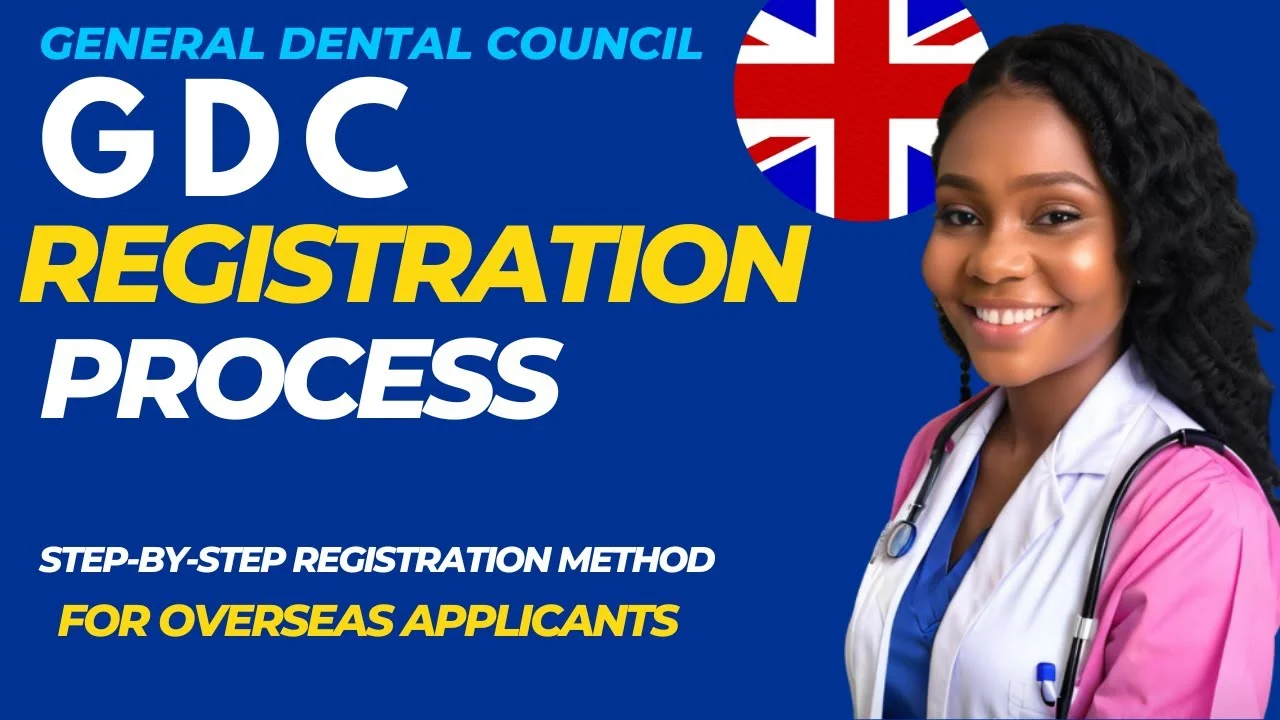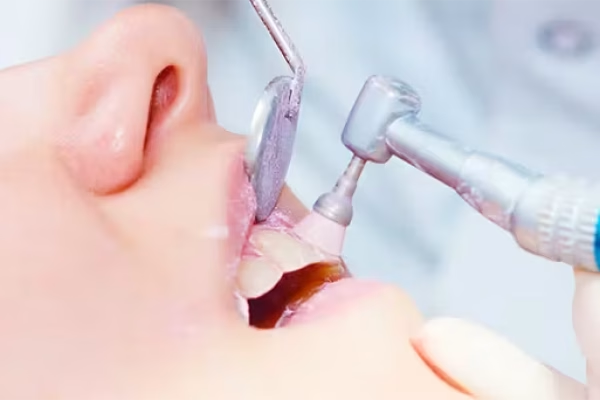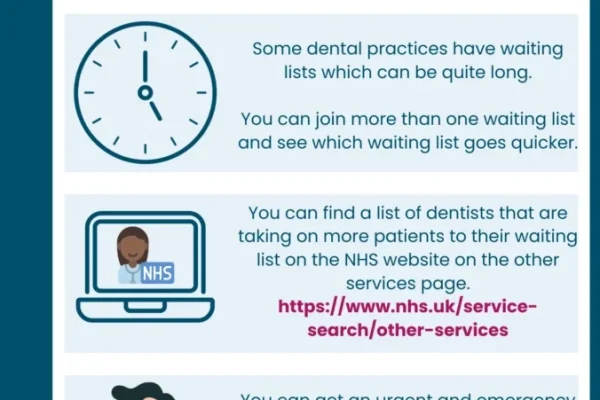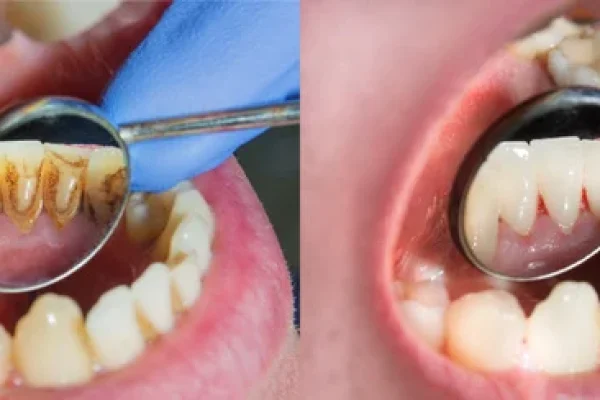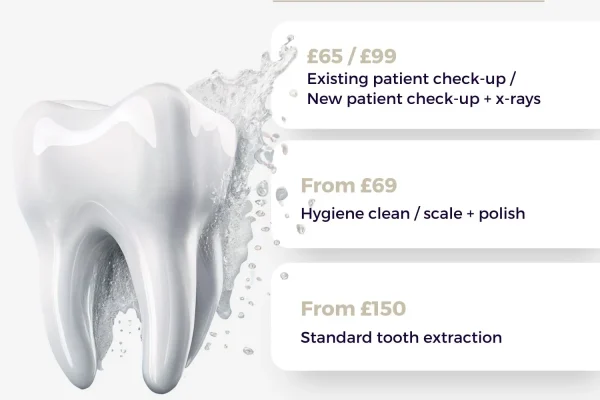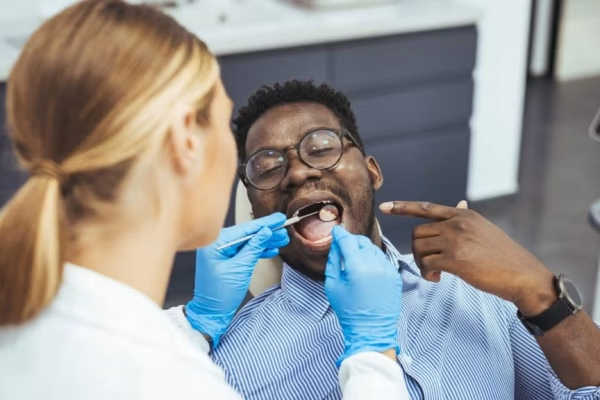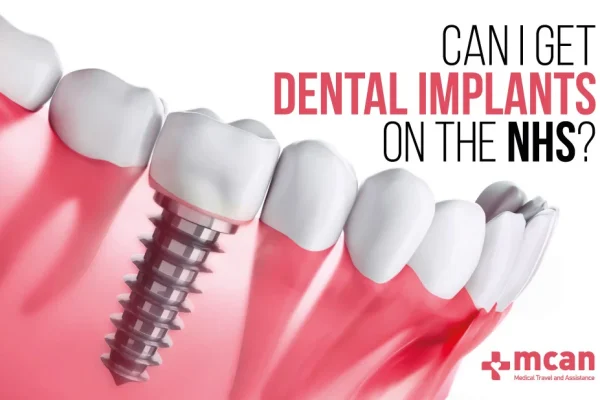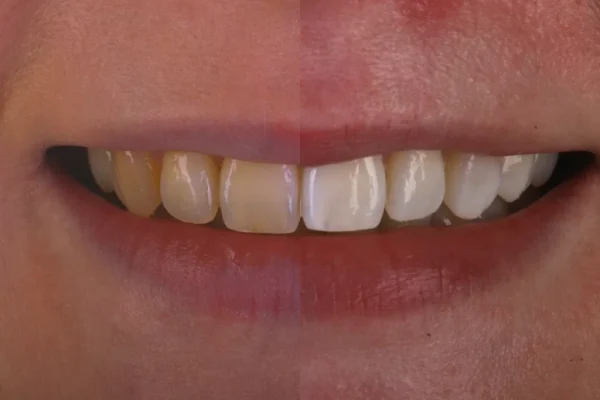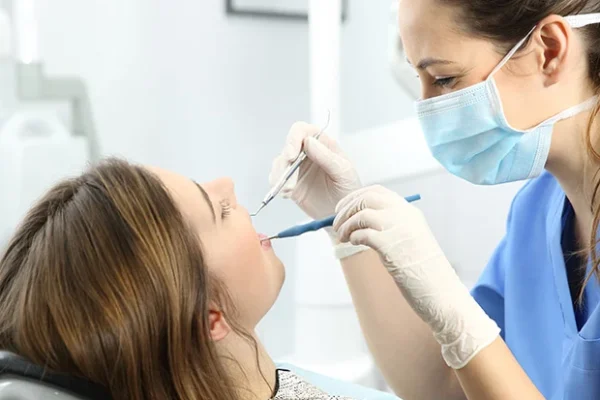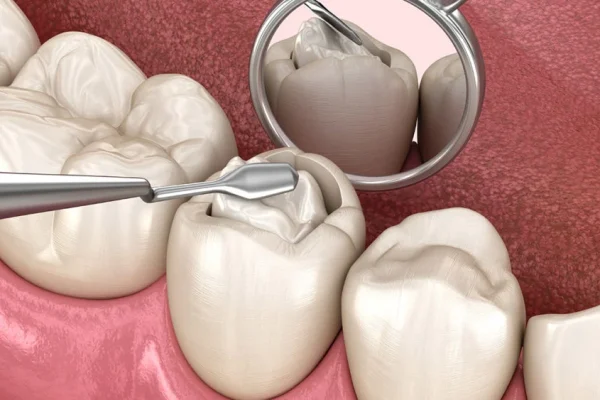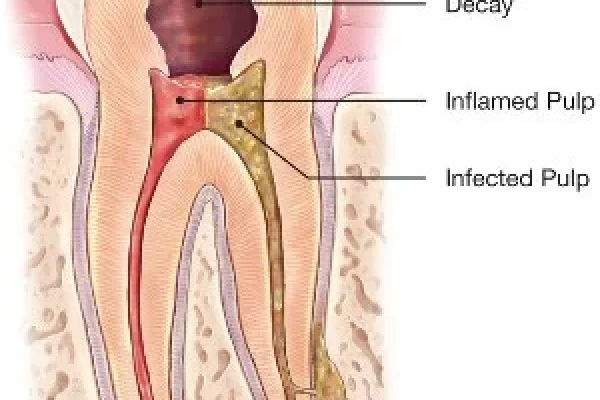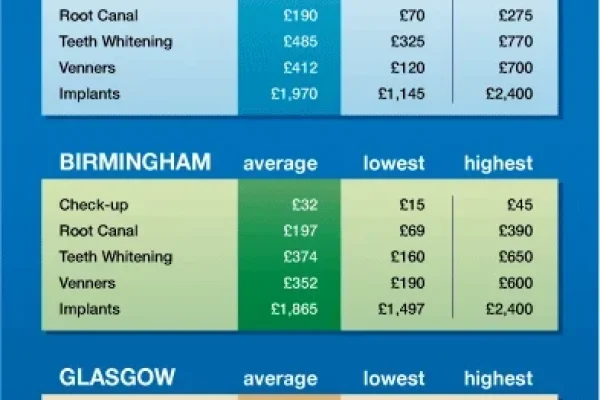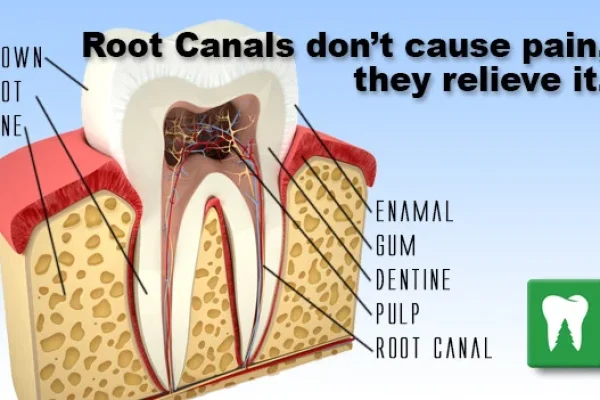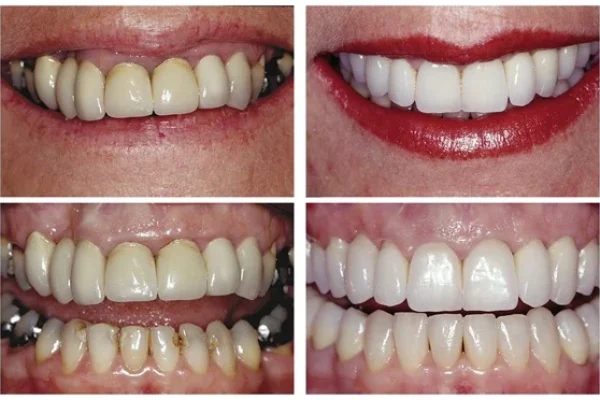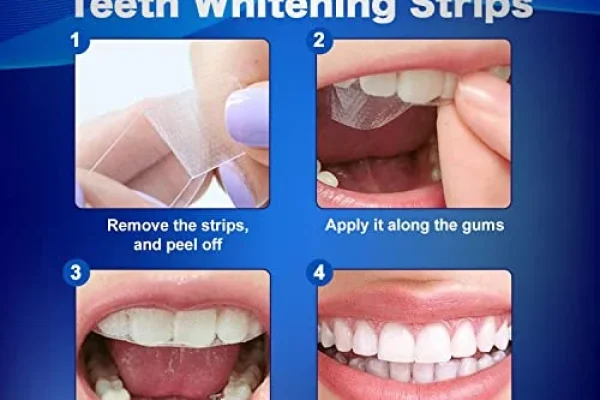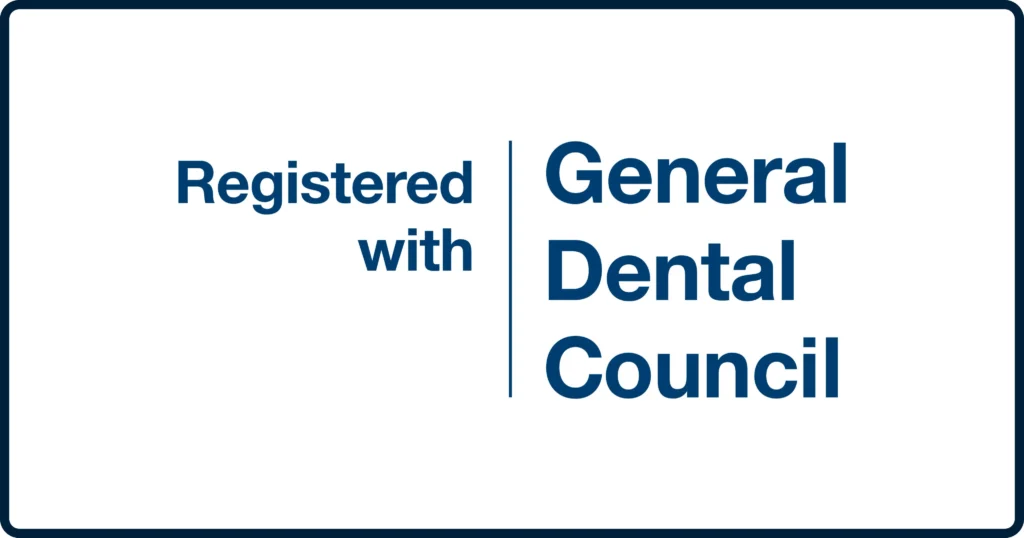
Stepping into the hallowed halls of dentistry in the United Kingdom isn’t just about wielding a drill or mastering diagnostics; it’s underpinned by a fundamental pillar of professional integrity and public trust: registration with the General Dental Council, universally known as the GDC. Think of it as the golden ticket, the non-negotiable entry pass that validates your credentials, confirms your competence, and, crucially, permits you to legally offer dental services within the UK’s borders. Without this specific registration, your skills, no matter how sharp, are simply not recognised for practice in this country. This isn’t merely a bureaucratic hurdle; it’s the guardian of patient safety, ensuring that anyone providing dental care has met rigorous standards and continues to adhere to a professional code of conduct. It’s the mechanism that allows patients to feel secure, knowing their practitioner is accountable and qualified. For the professional themselves, achieving general dental council registration is a landmark moment, signifying their readiness to contribute to oral healthcare under the UK’s regulatory framework. It’s proof positive of extensive training and successful completion of necessary examinations or assessments, ensuring a baseline level of quality across the sector. The process, while sometimes perceived as complex, is designed to be thorough, reflecting the significant responsibility dental professionals hold. It requires diligent application, often involving submitting detailed documentation about qualifications, health status, character references, and proof of English language proficiency. Navigating this journey effectively is paramount for aspiring and established dental practitioners looking to work in the UK, whether they trained domestically or internationally. It’s the difference between a hopeful aspiration and a tangible, legally recognised career path. Understanding each phase, from initial eligibility checks through to maintaining registered status, is key to a smooth transition into the UK dental landscape. This guide cuts through the noise, offering a clear path through the vital steps and common questions surrounding GDC registration, setting you firmly on course to legally practise.
Table of Contents
ToggleKey Takeaways
- General Dental Council (GDC) registration is mandatory to legally practice dentistry in the UK.
- The gdc register is the official list of all legally practising dental professionals in the UK.
- You can search the gdc register online to verify a practitioner’s status.
- Meeting gdc requirements, including qualifications, health, character, and often English language proficiency, is essential.
- Overseas dentists must typically pass the ORE or LDS exam to gain general dental council registration.
- Practising dentistry in the UK without valid GDC registration is a criminal offence.
What is General Dental Council Registration and Why is it Important?
At its core, the General Dental Council (GDC) serves as the regulatory body for dental professionals in the United Kingdom. Its primary mandate is crystal clear: to protect the public. It achieves this by ensuring that all dental professionals operating within the UK are fit to practise, which encompasses having the necessary qualifications, remaining in good health, maintaining good character, and adhering to high professional standards. This is where general dental council registration comes into play. It is the formal act of being added to the official list of dental professionals legally allowed to work in the UK. This list, accessible to the public, is known officially as the gdc register. Think of the gdc register as the definitive directory – a live, verified record of everyone who holds the legal right to provide dental services, from dentists and dental hygienists to dental nurses and technicians. Its function as a public record is paramount; it provides transparency, allowing patients and employers alike to verify a professional’s status with confidence. When someone is referred to as gdc registered, it means they have met the GDC’s stringent initial entry requirements and are continuing to abide by the ongoing standards and requirements necessary to maintain their place on the register. This isn’t a one-time check; it involves annual renewal and ongoing compliance with continuing professional development (CPD) requirements and conduct rules. The importance of this registration cannot be overstated. It is a legal imperative. Section 34 of the Dentists Act 1984 explicitly states that it is a criminal offence for anyone who is not appropriately registered with the GDC to practise dentistry in the UK. This underscores just how critical general dental council registration is; it is the absolute foundation upon which legal practice is built. Without it, engaging in any activity deemed to be the practice of dentistry is prohibited and subject to legal penalties. The terms gdc dental register, gdc uk register, and dental registration uk are all commonly used ways to refer to this essential official list, often interchangeably with general dental council register. Similarly, while less common now, the historical term british dental council register might occasionally be encountered, though the official body is and has been the General Dental Council for many years. Regardless of the phrasing used, they all point to the same crucial regulatory list that underpins safe and legal dental practice across the UK.
What is GDC registered dentist?
Delving deeper into specifics, a gdc registered dentist is precisely what the title implies: a dental practitioner who has successfully completed the registration process and whose name is formally entered onto the dentists’ section of the General Dental Council’s official register. This status is far more than just having your name on a list; it is the official declaration by the UK’s regulatory body that this individual possesses the necessary qualifications, clinical skills, and professional attributes deemed essential to provide dental treatment safely and effectively within the United Kingdom. It signifies that the dentist has undergone a thorough vetting process, which includes verification of their educational background – ensuring their degree is recognised or has been assessed as equivalent to UK standards – and confirmation that they meet the GDC’s requirements concerning health, character, and ethics. A gdc registered dentist is someone who has committed to upholding the standards of conduct, performance, and ethics set out by the GDC. These standards are not just guidelines; they are the cornerstone of professional practice, covering everything from patient care and communication to professionalism and maintenance of skills through ongoing learning. Crucially, only individuals who are gdc registered as dentists are legally permitted to carry out the full scope of practice defined for dentists in the UK. This includes diagnosis, treatment planning, performing complex restorative procedures, surgery, and prescribing certain medications. Without this registration, attempting to carry out these duties is illegal and puts both the practitioner and the public at significant risk. The public can confidently consult a gdc registered dentist knowing that they are dealing with a verified professional who is subject to the GDC’s regulatory oversight and accountability mechanisms. This oversight includes the GDC’s fitness to practise procedures, which can investigate concerns about a dentist’s conduct or competence, providing an essential layer of protection for patients.
How Do I Check if a Dentist is Registered? Searching the GDC Register
Ensuring the individual providing your dental care is legitimately qualified and permitted to practice in the UK is not just recommended; it’s a vital step for your own safety and peace of mind. Just as you wouldn’t accept medical treatment from someone claiming to be a doctor without verifying their credentials, the same vigilance should apply to dental professionals. The General Dental Council makes this verification process straightforward and publicly accessible through its online gdc register. This transparency is a key function of the GDC, empowering patients and employers to confirm a professional’s status directly from the source. The ability to search the gdc register is a powerful tool in protecting yourself from potentially unqualified or struck-off practitioners. While reputable practices will only employ registered staff, using the GDC’s search tool provides an independent confirmation that is quick and easy to obtain. The official GDC website is the primary, and most reliable, platform for conducting this check. It hosts the most up-to-date information regarding the registration status of all dental professionals regulated in the UK. To perform a gdc register search, you will typically need some basic information about the professional you wish to verify. The most common and effective way to search is by entering the individual’s name. However, if you happen to know their unique GDC registration number, this provides the most direct and accurate search result. Other details, such as their registered profession (e.g., Dentist, Dental Hygienist, Dental Nurse) and potentially their location, can help refine the search, especially if the name is common. The system is designed to be user-friendly, recognising variations in spelling or multiple entries for similar names, allowing you to identify the correct person efficiently. Taking just a moment to conduct a gdc register search provides crucial assurance that your dental care is in the hands of a legally recognised and regulated professional, upholding the standards expected across the UK dental sector.
Search GDC register: Step-by-step guide
Alright, let’s get practical. You want to verify a dental professional’s status using the official gdc register online tool. It’s a simple, secure process designed for public access. First things first, you need to navigate to the official General Dental Council website. It’s crucial to ensure you’re on the actual GDC site to guarantee the information’s accuracy and security – look for the official URL, usually gdc-uk.org. Once you’re on the homepage, locate the prominent feature for searching the register. This is often clearly labelled, perhaps as “Check the Register,” “Search the Register,” or similar wording, typically found in the main navigation menu or a dedicated section on the homepage. Clicking this link will take you to the search interface. Here, you’ll be presented with fields to enter the professional’s details. The most common starting point is the name. Enter the first name and surname of the dentist or dental professional you are looking for. The search tool is quite robust, but accurate spelling helps. If you have it, the GDC registration number is the most precise way to perform a gdc register search; entering this unique number will usually take you directly to that individual’s specific entry, leaving no room for ambiguity, which is why terms like search gdc number are often used to describe this specific action. After entering the details, initiate the search by clicking the appropriate button (usually labelled “Search”). The system will then process your query and display potential matches. Review the list of results carefully, especially if multiple entries appear for a similar name. Look for confirming details like the individual’s listed profession or practice location if known, to help identify the correct person. This entire process is often referred to generically as conducting a search gdc, highlighting that you are querying the GDC’s database. Following these steps allows anyone to easily perform a gdc dental register search and quickly ascertain whether a specific dental professional is currently registered and therefore legally permitted to practise in the UK, a fundamental step for informed healthcare choices.
How to check GDC registration status?
Once you’ve performed a search on the GDC website, the results page is where you’ll find the critical information regarding a dental professional’s standing. This is where you truly check gdc register status. The primary piece of information displayed for any potential match is their current registration status. This will clearly indicate whether the individual is ‘Registered’ or perhaps ‘Removed’ or ‘Suspended’ if they are no longer permitted to practise. For those who are registered, the listing will typically include essential details such as their full name, their unique GDC registration number, the specific professional title(s) under which they are registered (e.g., Dentist, Dental Nurse, Dental Hygienist), and the date they were initially registered. It will also show their current registration cycle end date, indicating when their annual renewal is due. Crucially, the GDC register also provides information related to a professional’s fitness to practise history. If a professional has any current or recent sanctions imposed by the GDC – such as conditions placed on their practice, a period of suspension, or if they have been struck off the register – this information will be publicly available on their entry. This level of transparency allows the public to make informed decisions based on a professional’s full regulatory history. The act of reviewing this information is what constitutes checking their gdc registration status. This process is frequently referred to using various terms like gdc register check, gdc registration check, gdc check register, gdc check registration, or simply performing a gdc check. Each of these phrases points to the same vital action: consulting the official GDC database to verify that a dental professional is currently registered and free from any restrictions that might impact their fitness to practise. Knowing how to effectively check gdc registration status empowers patients and employers to ensure they are engaging with legitimate, accountable, and currently regulated dental professionals, which is paramount for ensuring high-quality, safe dental care.
GDC Registration Process: Requirements, Eligibility, and Timeline
Embarking on the journey towards gaining general dental council registration is a multi-faceted process, tailored specifically to ensure that all individuals entering the UK dental workforce meet a defined threshold of competence, safety, and professionalism, irrespective of where they received their primary training. The GDC’s framework is designed to assess a candidate’s qualifications, practical skills, health, and character, thereby safeguarding the public. It’s important to understand from the outset that the specific pathway and requirements you will need to navigate depend significantly on where you obtained your dental qualification. There are distinct routes for those who qualified within the UK compared to those who trained overseas, reflecting the need to assess qualifications from different educational systems. While the ultimate goal – achieving registered status – is the same, the steps and documentation involved can differ considerably. Regardless of your training background, the GDC mandates that all applicants must satisfy core criteria related to their suitability to practise. These universal requirements typically include demonstrating that you hold a recognised or registrable qualification, are in good physical and mental health, and are of good character. These checks are fundamental to ensuring that registered professionals pose no undue risk to the public they serve. Furthermore, meeting the required standards for English language proficiency is a non-negotiable component of the registration process for many applicants, particularly those whose primary dental training was not conducted in English. The GDC is rigorous in its assessment of applications, taking the time necessary to verify details and ensure all criteria are met. This attention to detail, while sometimes resulting in longer processing times, is essential for maintaining the integrity of the register and upholding public safety. Understanding the relevant route for your specific circumstances and meticulously preparing your application is crucial for a successful outcome in the GDC registration process.
What are the GDC requirements?
To successfully achieve general dental council registration in the UK, every applicant must demonstrate they meet a specific set of fundamental standards established by the GDC. These are known collectively as the gdc requirements. Firstly, and perhaps most obviously, you must hold an eligible dental qualification. For those trained in the UK, this typically means a degree from a dental school approved by the GDC. For overseas-trained dentists, the qualification must either be from a country with which the UK has a reciprocal agreement allowing for direct recognition, or it must be assessed as being equivalent, often demonstrated by passing the GDC’s Overseas Registration Exam (ORE) or the Licence in Dental Surgery (LDS) exam. Beyond academic qualifications, health is a critical requirement. Applicants must provide declarations about their health and, in some cases, undergo medical examinations to demonstrate they are physically and mentally capable of safe practice. This is to ensure that a practitioner’s health does not impair their ability to provide care without putting patients or themselves at risk. Good character is another non-negotiable element of the gdc requirements. The GDC expects all applicants to be of good character, meaning they must be honest, trustworthy, and have not engaged in behaviour that would bring the profession into disrepute or pose a risk to the public. This involves declaring any criminal convictions, cautions, or adverse findings from previous regulatory bodies, both in the UK and overseas. The GDC conducts checks to verify these declarations. While not strictly a prerequisite for initial registration in all cases, having appropriate professional indemnity or insurance is a mandatory requirement for practice once registered. The GDC requires all registered dental professionals who carry out clinical work to have indemnity cover in place, providing financial protection in case of patient claims. Meeting all these multifaceted gdc requirements is essential for any individual aspiring to join the UK’s regulated dental workforce and contribute to patient care safely and ethically.
How do I register for a dentist?
The question of “How do I register for a dentist?” when posed by an individual seeking to become a registered dental practitioner with the GDC is distinct from a patient registering with a dental practice for treatment (which is a very different process, typically involving joining an NHS or private practice list). For someone aiming to join the ranks of gdc registered professionals, the process begins with a formal application to the General Dental Council. This isn’t a quick sign-up; it’s a comprehensive procedure requiring careful attention to detail and submission of a substantial amount of documentation. The very first step is usually to visit the GDC’s official website to understand the specific requirements based on your training location and profession, and to access the relevant application forms. These forms are thorough, requesting detailed information about your personal history, education, training, qualifications, and any previous professional experience. A crucial part of the application involves submitting certified copies of all required documents. This can include academic certificates and transcripts, proof of identity, health declarations, character references, and evidence of English language proficiency where applicable. The GDC requires these documents to be properly verified, often necessitating certification by an authorised person. There are also mandatory application fees that must be paid at the time of submission. Once the application form is completed and all supporting documents are collated and certified, they must be submitted to the GDC. The GDC then undertakes a rigorous process of assessing the application. This involves verifying the authenticity and validity of the qualifications and documents provided, assessing whether the health and character requirements are met, and ensuring all necessary criteria for registration are satisfied. The GDC may contact educational institutions or previous employers for verification purposes. It’s a detailed review designed to confirm eligibility and suitability for registration. Following the GDC’s assessment and approval, and upon payment of the initial registration fee, your name will be added to the relevant section of the gdc register, formally granting you the legal permission to practise in the UK under your specified professional title.
How long does GDC registration take?
One of the most frequently asked questions for applicants is understandably, “How long does GDC registration take?”. The answer, unfortunately, isn’t a simple one-size-fits-all timeframe. The duration of the general dental council registration process can vary quite significantly, influenced by a number of factors. While the GDC aims to process applications as efficiently as possible, thoroughness is paramount, and this takes time. For applicants with standard UK qualifications, where verification is generally straightforward, the process might be relatively quicker, potentially taking several weeks once all documentation is received and in order. However, for overseas-trained dentists, the timeline is typically considerably longer. This is due to the additional steps involved, such as the need for qualification assessment, the potential requirement to sit and pass the Overseas Registration Exam (ORE) or Licence in Dental Surgery (LDS), and the more complex process of verifying international qualifications and professional history. These steps alone can add many months, or even years depending on exam availability and success, before a full registration application can even be submitted. Even once a complete application is submitted to the GDC, factors within the GDC’s processing pipeline can affect the duration. The completeness and accuracy of your submitted application and supporting documents are crucial; any missing information or discrepancies will inevitably lead to delays as the GDC will need to request clarification or further evidence. The complexity of verifying your specific qualifications and background also plays a role. Furthermore, the volume of applications the GDC is handling at any given time can impact processing speeds; during peak periods, waiting times may increase. While the GDC may provide estimated processing times on its website, applicants should generally prepare for a period of several weeks to potentially many months from the point of submitting a complete application to receiving confirmation of registration, especially for non-standard or overseas routes. Patience and meticulous preparation of your application package are vital to minimise potential delays in the GDC registration timeline.
What is the language requirement for GDC?
A fundamental part of ensuring patient safety and effective communication in a healthcare setting is the ability of practitioners to communicate clearly and effectively in English. Recognising this, the General Dental Council has a mandatory English language requirement for registration for many applicants, particularly those whose primary dental qualification was obtained in a country where English is not the primary language of instruction and practice. This requirement is not merely about casual conversation; it’s about demonstrating a level of proficiency sufficient to communicate effectively with patients, explain complex treatment options, understand medical histories, liaise with other healthcare professionals, and comprehend professional literature and guidance. The GDC accepts several methods as proof of meeting this language requirement for GDC. The most common and widely accepted method is achieving the required scores in a recognised English language test. The International English Language Testing System (IELTS) is the primary test accepted by the GDC, specifically the Academic version. Applicants must achieve a minimum overall score and specific minimum scores in each of the four components: Listening, Reading, Writing, and Speaking. The specific scores required are published on the GDC’s website and are subject to review, but typically involve a high overall band score. Other evidence may be considered in specific circumstances, such as having trained and practised dentistry recently in a country where English is the primary language, or holding a degree in English from a university in a majority English-speaking country, provided there is sufficient recent practice in English. However, for many overseas applicants, the IELTS test is the most direct route to satisfy the language requirement for GDC. It is imperative that applicants check the very latest requirements on the GDC website, as these can be updated. Failing to meet the stipulated English language standards will prevent registration, regardless of your clinical qualifications, underscoring the GDC’s firm stance on the importance of effective communication for patient care.
What is the IELTS score for dentist in UK?
For many overseas-trained dentists aspiring to practise in the UK, successfully demonstrating proficiency in English through the International English Language Testing System is a mandatory step towards general dental council registration. The specific benchmark they need to hit is often summarised by the question: “What is the IELTS score for dentist in UK?”. The General Dental Council explicitly requires candidates to achieve a minimum score in the Academic version of the IELTS test to meet their language proficiency criteria. As of current requirements, the minimum overall IELTS band score required for GDC registration as a dentist is typically 7.0. However, meeting the overall score isn’t sufficient on its own. The GDC also mandates minimum scores in each individual component of the test (Listening, Reading, Writing, and Speaking). For dentists, the minimum required score in each of these four skills is usually 6.5. This means a candidate must score at least 6.5 in Listening, 6.5 in Reading, 6.5 in Writing, and 6.5 in Speaking, *and* have an overall average score of 7.0 or higher, to satisfy the language requirement. It’s absolutely crucial for applicants to check the latest, most up-to-date information on the official GDC website, as these requirements are subject to review and can change. The GDC’s decision to set these specific scores reflects the high level of communication required in a dental clinical setting, where clarity, comprehension, and the ability to explain complex medical information are paramount for patient safety and effective practice. Achieving the required IELTS score for dentist in UK is a significant hurdle for many international candidates, requiring dedicated study and preparation to ensure all components, as well as the overall average, meet the GDC’s strict criteria before they can proceed with their registration application.
Does GDC accept IELTS retake?
A common concern among applicants facing the English language requirement, particularly for those taking the IELTS test, revolves around what happens if they don’t achieve the required scores in a single sitting. The pertinent question often arises: “Does GDC accept IELTS retake?”. The good news for candidates is that the General Dental Council does indeed understand that achieving the required scores across all sections and overall might take more than one attempt. Yes, the GDC accepts results from IELTS retakes. You are permitted to retake the IELTS test as many times as needed to achieve the minimum required scores for each component (Listening, Reading, Writing, Speaking) and the minimum overall band score. However, there is a specific policy regarding how the GDC treats scores from multiple test sittings. The GDC currently allows candidates to combine scores from two IELTS Academic test sittings, provided these sittings occurred within a specific timeframe, typically within six months of each other. The key condition for combining scores is that you must achieve the minimum required score in *all* four components (6.5 usually for dentists) across these two sittings, and the overall score from *one* of the sittings must meet the minimum required overall score (7.0 usually for dentists). For example, if in your first sitting you scored 7.0 overall with scores of 6.5 in Listening, Reading, and Speaking, but only 6.0 in Writing, and in your second sitting within six months you scored 6.5 in Writing and met the 6.5 minimum in the other components, even if your overall was slightly lower, the GDC may accept the combination provided one of the sittings had the required overall score of 7.0. This policy provides flexibility, acknowledging that candidates might excel in different areas on different days. Nevertheless, it’s crucial to verify the exact, up-to-date GDC policy on combining IELTS scores from multiple tests on their official website, as rules can be refined. So, yes, retakes are permitted, and there’s a system in place to potentially accept scores from two sittings, offering a valuable opportunity for candidates striving to meet the language requirement for GDC and ultimately gain their general dental council registration.
Can I work as a dentist without GDC registration?
Let’s be absolutely unequivocal on this point, because it’s one of the most critical aspects of dental practice in the United Kingdom: the question, “Can I work as a dentist without GDC registration?”, has a clear and resounding answer: No, absolutely not. Practising dentistry, or holding yourself out as a dentist or other dental professional requiring registration, in the UK without being validly and currently registered with the General Dental Council is not just frowned upon; it is a criminal offence under the Dentists Act 1984. The GDC exists specifically to regulate dental professionals to protect the public. Allowing unregistered individuals to perform dental procedures or provide advice would bypass all the checks and balances designed to ensure competence, safety, and ethical conduct. The potential consequences of unregistered practice are severe, both for the individual attempting it and for any unsuspecting patients they might treat. For the individual, engaging in unregistered practice can lead to prosecution, hefty fines, and a criminal record, which would likely make future legitimate registration attempts impossible, not just in the UK but potentially in other countries too. It undermines the entire regulatory framework and the trust the public places in dental professionals. For patients, being treated by someone not on the gdc register means they are receiving care from someone whose qualifications may not be verified, whose health or character may not meet the required standards, and who is not accountable to the GDC’s fitness to practise procedures. This significantly increases the risk of receiving substandard or dangerous treatment. Therefore, anyone seeking to perform any act that constitutes the practice of dentistry in the UK, which includes a wide range of activities from examinations and diagnoses to treatments and advice, must first ensure they have successfully completed the general dental council registration process and are listed on the official gdc register. There is no loophole, no alternative pathway, and no temporary permission to practise without being registered. This legal requirement is a cornerstone of patient safety in the UK.
What is a GDC certificate?
When a dental professional successfully completes the process of initial general dental council registration and, subsequently, when they renew their registration each year, they are issued with documentation from the General Dental Council. This documentation serves as tangible proof of their registered status and is commonly referred to as a GDC certificate or registration certificate. While the format might evolve over time (it could be a physical document or increasingly, a digital confirmation), its purpose remains the same: to provide official confirmation that the individual is currently listed on the relevant section of the gdc register and is legally permitted to practise their profession in the UK for the specified registration year. The GDC certificate will typically display key information about the professional, including their full name as it appears on the register, their unique GDC registration number, the profession(s) they are registered under (e.g., Dentist, Dental Nurse, Dental Hygienist, etc.), and the expiry date of the current registration period. It essentially acts as a licence to practise for that year. Employers in dental practices will routinely ask to see a professional’s current GDC certificate as proof of their active registration status before employing them, as it is illegal to employ an unregistered individual in a role that requires GDC registration. Similarly, some patients or regulatory bodies might request to see it as verification, although checking the online gdc register is the most reliable and up-to-date method. The issuance of the GDC certificate is contingent upon the professional successfully meeting all the requirements for registration renewal, which includes paying the annual retention fee and declaring that they continue to meet the GDC’s standards, including health, character, and often, having completed the required amount of continuing professional development (CPD). Losing or misplacing the certificate doesn’t mean you are unregistered (your status is on the online register), but it is an important document for proof of registration, especially when starting new employment.
Overseas Dentists and GDC Registration Routes
For dentists who have completed their training outside the United Kingdom, entering the UK dental workforce requires navigating specific pathways designed to assess that their qualifications and skills meet the standards expected for safe and effective practice within the UK’s regulatory framework. This isn’t simply about having a dental degree; it’s about demonstrating that the training and experience gained internationally are comparable to that of a UK-trained dentist and that the individual meets all other GDC requirements, such as English language proficiency, health, and character. The General Dental Council provides structured routes for overseas-trained dentists to gain general dental council registration, acknowledging the diverse range of educational systems globally. The fundamental principle is ensuring equivalence of standards. Unlike professionals from countries with which the UK has formal agreements for mutual recognition of qualifications (which are now very limited, primarily within the European Economic Area for historical reasons, though this is complex post-Brexit), dentists trained in most countries around the world cannot simply register directly with their existing qualification. Their qualifications need to be recognised by the GDC as providing the necessary knowledge and skills, or they must demonstrate this equivalence through rigorous assessment processes. These assessment routes are specifically designed to bridge the gap between international training and UK standards, ensuring that all registered dentists in the UK, regardless of their training origin, possess the competency required to protect public safety. Understanding which route applies to your specific qualification and nationality is the critical first step for any overseas dentist considering practice in the UK, as the requirements and examinations involved are demanding and require significant preparation and commitment.
How can a foreign trained dentist practice in the UK?
A foreign-trained dentist wishing to practise in the UK must successfully navigate a formal process to gain general dental council registration. This involves demonstrating to the GDC that their skills, knowledge, and qualifications meet the required UK standards. For the vast majority of dentists who qualified outside the UK and European Economic Area (EEA), the primary and most common route to registration involves sitting and passing a specific set of examinations administered or recognised by the GDC. The most prominent of these is the Overseas Registration Exam (ORE). The ORE is designed to test the clinical skills and knowledge of overseas dentists to ensure they are equivalent to that of a UK-qualified dentist. It is typically a two-part examination, assessing both theoretical knowledge (Part 1) and practical clinical skills (Part 2). Successfully passing both parts of the ORE is usually the main gateway for non-EEA qualified dentists to become eligible to apply for general dental council registration. Another historical route, though less common now, is the Licence in Dental Surgery (LDS) examination offered by the Royal College of Surgeons of England. Like the ORE, the LDS serves as an assessment of an overseas dentist’s clinical competence and knowledge relative to UK standards. Passing either the ORE or the LDS demonstrates the necessary clinical equivalence required by the GDC. Beyond passing these exams, foreign-trained dentists must also satisfy all other standard GDC registration requirements, including demonstrating the necessary English language proficiency (usually via IELTS), providing evidence of good health and good character, and submitting a complete application with verified supporting documentation. It’s a comprehensive process, requiring significant preparation and often multiple attempts at the exams, but passing these assessments is the essential key that unlocks the door to legal practice in the UK for most dentists trained abroad, allowing them to join the gdc register.
How do overseas dentists register in the UK?
The journey for overseas dentists towards general dental council registration in the UK is a structured process that typically involves several distinct stages. It begins with assessing whether their existing qualification allows for direct registration (which, as previously mentioned, is rare outside of very specific circumstances or historical agreements) or if they need to demonstrate equivalence through examination. For most international graduates, the latter is the case, meaning the first major step is preparing for and sitting a recognised assessment like the Overseas Registration Exam (ORE) or the Licence in Dental Surgery (LDS). Passing these rigorous examinations is paramount, as it serves as proof to the GDC that their clinical knowledge and skills are comparable to those of a UK-qualified dentist. While preparing for and taking the exams, candidates should also concurrently focus on meeting the other crucial GDC requirements. This includes demonstrating English language proficiency, most commonly achieved by obtaining the required scores in the IELTS Academic test. They must also gather documentation to prove their good health and character, which involves health declarations and potentially character references and checks from previous regulatory bodies. Once the required exams are passed and all other criteria are demonstrably met, the overseas dentist can then submit a formal application for general dental council registration. This is a detailed application requiring comprehensive information about their training, examination results, professional history, and personal background, accompanied by certified copies of all supporting documents. The GDC then undertakes a thorough assessment of this application, verifying the authenticity and validity of everything submitted. Only upon successful verification and assessment, and payment of the initial registration fee, will the overseas dentist be added to the gdc register, gaining the legal right to practise their profession in the UK. It’s a demanding but necessary path to ensure high standards of care.
Is Indian BDS valid in the UK?
A very common query, especially from dentists trained in South Asia, is specifically, “Is Indian BDS valid in the UK?”. Let’s clarify this with precision. The Bachelor of Dental Surgery (BDS) degree obtained from a dental college in India is widely recognised internationally as a robust foundational dental qualification. However, when it comes to direct general dental council registration for the purpose of practising dentistry in the United Kingdom, an Indian BDS degree itself is not automatically recognised by the GDC for this purpose. This means that holding an Indian BDS degree alone does *not* grant you direct entry onto the UK’s gdc register as a practising dentist. The GDC maintains a list of ‘recognised’ UK qualifications, and degrees from institutions outside this list require a demonstration of equivalence. While the Indian BDS degree is not on the list of automatically registrable qualifications, it is recognised by the GDC as a *qualifying* degree. This is a crucial distinction. What ‘qualifying degree’ means in this context is that graduates holding an Indian BDS are generally eligible to apply to sit the GDC’s Overseas Registration Exam (ORE) or the Royal College of Surgeons’ Licence in Dental Surgery (LDS) examination. Therefore, while the Indian BDS degree is a necessary and valid academic credential, it serves as the prerequisite that allows a candidate to *attempt* the UK’s mandatory bridging examinations (ORE or LDS). It is the successful passing of the ORE or LDS exams, coupled with meeting all other GDC requirements (English language proficiency, health, character, etc.), that ultimately makes an Indian BDS graduate eligible to apply for and gain general dental council registration and thus legally practise dentistry in the UK. Simply possessing the BDS degree from India is the first, vital step, but it must be followed by successful completion of the required UK assessments to achieve registered status.
How can I practice in UK after BDS?
For individuals who have obtained a Bachelor of Dental Surgery (BDS) degree from an institution outside the UK, particularly from countries like India where the degree itself is not automatically registrable, the path to practising dentistry in the UK involves a defined set of steps laid out by the General Dental Council. The process is designed to ensure that your skills and knowledge are equivalent to those of a UK-trained dentist. The fundamental requirement is to pass one of the GDC-accepted bridging examinations for overseas qualified dentists. The most common of these is the Overseas Registration Exam (ORE), though the Licence in Dental Surgery (LDS) exam from the Royal College of Surgeons is another option. Passing either the ORE (both Part 1 and Part 2) or the LDS is a mandatory prerequisite for general dental council registration for most overseas BDS graduates, including those from India. This demonstrates to the GDC that you possess the necessary clinical and academic standards required for safe practice in the UK. Simultaneously with preparing for and undertaking these exams, you must also focus on meeting the GDC’s other essential requirements. This includes proving your proficiency in the English language, typically by achieving the minimum required scores in the IELTS Academic test (usually 7.0 overall, with no less than 6.5 in each component). You will also need to demonstrate good health and character, which involves submitting relevant declarations and potentially undergoing checks. Only once you have successfully passed the required examination (ORE or LDS) and gathered all evidence confirming you meet the language, health, and character criteria, can you proceed to submit a full application for general dental council registration. This application requires detailed documentation and verification. Upon successful assessment of your complete application by the GDC and payment of the necessary fees, you will be added to the gdc register, officially permitting you to practise dentistry in the UK after completing your BDS abroad.
How to become a dentist in the UK from India?
Aspiring dentists from India who have completed their Bachelor of Dental Surgery (BDS) degree and wish to practise in the United Kingdom must navigate a specific and rigorous pathway established by the General Dental Council (GDC). Becoming a dentist in the UK with an Indian BDS qualification is a multi-stage process that requires significant dedication, time, and successful completion of mandatory assessments. The Indian BDS degree, while a recognised primary qualification, does not grant direct eligibility for general dental council registration. The crucial bridging step is to demonstrate that your knowledge and clinical skills are equivalent to those of a UK-trained dentist by passing one of the GDC-approved examinations for overseas dentists. The most common exam for Indian BDS graduates is the Overseas Registration Exam (ORE), a two-part assessment covering both theoretical and practical aspects of dentistry as practised in the UK. Alternatively, candidates can attempt the Licence in Dental Surgery (LDS) examination. Successfully passing both parts of the ORE or the LDS is absolutely essential to become eligible to apply for registration. Parallel to preparing for and taking these exams, candidates must also satisfy the GDC’s other universal requirements. This includes demonstrating a high level of English language proficiency, typically evidenced by achieving the minimum required scores in the IELTS Academic test (currently 7.0 overall with 6.5 in each section, though always check the latest GDC guidance). You must also provide satisfactory evidence of your good health and good character. Gathering all required documentation, including qualifications, exam results, language test scores, health declarations, and character references, is vital. Once all these prerequisites are met – primarily passing the ORE/LDS and meeting language/health/character standards – you can submit a formal application package for general dental council registration. The GDC will then assess your application, verify documents, and upon approval and payment of fees, add you to the gdc register. This is the definitive process for an Indian BDS holder to legally practise as a dentist in the UK.
Specific Professional Registers: Dentist and Dental Nurse
It’s important to understand that the general dental council register isn’t just one single, monolithic list of names. Rather, the GDC maintains separate and distinct registers for each of the different dental professions it regulates. This segregation reflects the varied roles, responsibilities, and scopes of practice within the dental team. While all registered dental professionals fall under the GDC’s oversight and are listed on the overall GDC register, they are specifically listed on the register relevant to their particular profession. This includes dentists, dental hygienists, dental therapists, dental nurses, dental technicians, clinical dental technicians, and orthodontic therapists. Each professional group has its own defined standards of practice and entry requirements for their respective register. Focusing on two key roles often searched for, the GDC maintains prominent separate registers for dentists and dental nurses, reflecting their crucial and distinct functions within dental care settings. While a dental nurse works closely with a dentist, their training pathways, scopes of practice, and specific requirements for registration differ significantly. Maintaining these separate registers allows the GDC to apply profession-specific standards and training requirements, ensuring that individuals practising within each role have the appropriate education and skills for that specific capacity. It also enables the public and employers to easily identify and verify the registration status of a professional for a particular role. Accessing the correct professional register via the GDC’s online search tool is essential when verifying the credentials of a specific member of the dental team, ensuring they are registered for the specific role they are undertaking.
GDC Dentist Register
The gdc dentist register is arguably the most frequently accessed section of the General Dental Council’s overall list of registered professionals. This specific register holds the names of all individuals who are legally recognised and permitted by the GDC to practise as dentists in the United Kingdom. Inclusion on the gdc dentist register is the essential legal authorisation required for anyone to undertake acts that constitute the practice of dentistry, which encompasses a wide range of clinical activities from examining patients and diagnosing oral diseases to planning and carrying out complex treatments like fillings, extractions, root canals, crowns, bridges, and prescribing medications. Only individuals whose names appear on this particular register can legally call themselves a dentist and perform these procedures within the UK. The GDC rigorously assesses the qualifications, training, health, character, and English language proficiency (where applicable) of all applicants before granting entry to this register. The standards for entry and ongoing retention are high, reflecting the significant responsibility and clinical complexity inherent in the role of a dentist. When searching the GDC’s online tool using terms like uk dentist register, dentist register uk, or dental register uk, you are specifically querying this section of the GDC’s database. Verifying a practitioner’s presence on the gdc dentist register is the definitive way for patients and employers to confirm that they are dealing with a qualified, regulated, and currently registered dentist who is legally authorised to provide dental care in the UK, subject to the GDC’s standards and oversight. This register is a cornerstone of public protection within UK dental healthcare.
GDC Dental Nurse Register
Just like dentists, dental nurses play an absolutely vital role in the delivery of safe and effective dental care, working closely alongside dentists and other members of the dental team. Recognising their critical contribution and the need to protect the public, the General Dental Council also maintains a dedicated list for these professionals: the gdc dental nurse register. Since 2008, registration with the GDC has been mandatory for all practising dental nurses in the UK. This means that it is illegal for someone to work as a dental nurse in the UK unless their name is entered on the official gdc dental nurse register. This requirement ensures that all individuals working in this capacity have met the GDC’s minimum standards for training, competence, health, and character. The process for joining the gdc dental nurse register involves completing an approved dental nursing qualification, meeting the GDC’s requirements regarding health and character, and submitting a successful application with the necessary documentation and fees. Being listed on this register signifies that the individual is a qualified, regulated dental professional who is accountable to the GDC’s standards of conduct and ethics, just like a dentist. When using the GDC’s online search facility, you can specifically search this register using terms such as gdc register dental nurse or simply dental nurse register. This allows employers to verify that their dental nursing staff are legally permitted to work, and it provides assurance to patients that the dental nurse assisting their treatment is a registered professional. The mandatory registration of dental nurses with the GDC underscores the importance of every member of the dental team in ensuring patient safety and quality of care across the UK.
Frequently Asked Questions About General Dental Council Registration
Navigating the landscape of professional regulation, especially something as critical as the pathway to legal practice, often comes with a cascade of questions. Understanding the nuances of general dental council registration is paramount for both aspiring dental professionals and the public they serve. It’s a system designed to protect patients, uphold standards, and provide clarity on who is qualified and permitted to offer dental services in the UK. To help demystify some of the common points of confusion and consolidate key information, we’ve compiled answers to the most frequently asked questions about this essential process. These questions often touch upon the core requirements, the implications of registration status, and the practical steps involved in either gaining registration or verifying someone’s status. Addressing these points directly serves to provide a comprehensive overview and empower individuals with the knowledge they need to confidently engage with the GDC system. Whether you are a dental professional embarking on your registration journey, an employer seeking to hire staff, or a patient wanting to verify your practitioner’s credentials, the information contained within these answers provides vital clarity on the regulations governing dental practice in the United Kingdom. Let’s tackle some of the most common queries head-on, offering concise yet thorough explanations to ensure a clear understanding of GDC registration.
What is GDC registered dentist?
Defining a GDC registered dentist is fundamental to understanding dental practice in the UK. Essentially, a gdc registered dentist is a dental practitioner whose name has been formally entered onto the dentists’ section of the General Dental Council’s official, public register. This is the absolute cornerstone of legal dental practice in the UK; without this specific registration, an individual cannot lawfully refer to themselves as a dentist or perform acts that constitute the practice of dentistry within the country. This status signifies that the individual has met the GDC’s rigorous entry requirements. These requirements are comprehensive, covering everything from possessing a recognised dental qualification (either a GDC-approved UK degree or an overseas qualification assessed as equivalent, typically through passing the ORE or LDS exams) to demonstrating that they are in good health and are of good character. Furthermore, for many overseas-trained dentists, it mandates proving proficiency in the English language, usually via achieving specific scores in the IELTS Academic test. Beyond initial registration, being gdc registered means the dentist is accountable to the GDC and must adhere to their standards of conduct, performance, and ethics. They are also required to maintain their skills and knowledge through ongoing Continuing Professional Development (CPD) and renew their registration annually, paying a retention fee and confirming they still meet the GDC’s standards. For the public, consulting a gdc registered dentist provides assurance that the practitioner is qualified, regulated, and subject to the GDC’s oversight and fitness to practise procedures, offering a vital layer of protection and trust in the quality and safety of the dental care received.
How do I check if a dentist is registered?
Verifying the registration status of a dental professional is a simple yet critically important step for patients and employers alike, serving as a primary method of public protection. The most reliable and straightforward way to check if a dentist is registered with the General Dental Council (GDC) is by using the official online search facility available on the GDC’s website (gdc-uk.org). This online register is the definitive source for up-to-date information on all registered dental professionals in the UK. To perform a check, navigate to the “Check the Register” or “Search the Register” section of the GDC website. You can search using the individual’s name – inputting their first name and surname is usually sufficient, though the more accurate the spelling, the better the results. If you happen to know the person’s unique GDC registration number, this is the most direct and accurate way to find their entry. The search results will display whether the person is currently registered, their profession, their registration number, and importantly, any information related to their fitness to practise history (e.g., conditions, suspensions, or removals). This allows you to confirm their status and view any public notes about their ability to practise safely. The GDC strongly encourages the public to use this tool to check gdc register status for anyone providing dental care. It’s a quick process that provides essential peace of mind, confirming that your practitioner is a legally registered and regulated professional within the UK dental system, accountable to the GDC’s standards.
What are the GDC requirements?
Successfully obtaining general dental council registration hinges entirely on meeting a specific set of criteria established by the GDC. These criteria, collectively known as the gdc requirements, are designed to ensure that all registered dental professionals are competent, safe, and ethical practitioners. At the forefront is the requirement for a recognised qualification; this means holding a dental degree from a GDC-approved UK institution or, for overseas graduates, possessing a qualification that has been assessed as equivalent, typically by passing the Overseas Registration Exam (ORE) or Licence in Dental Surgery (LDS). Beyond academic credentials, applicants must satisfy requirements related to their health; they need to declare any health conditions that could potentially affect their ability to practise safely and, if necessary, provide medical evidence. Demonstrating good character is equally vital; the GDC requires applicants to disclose any criminal convictions, cautions, or adverse findings from previous regulatory bodies and may conduct checks to verify this. This ensures that registered professionals are trustworthy and uphold public confidence. For many, particularly those whose primary training wasn’t in English, proving proficiency in the English language is a mandatory requirement, usually met by achieving specific minimum scores in the IELTS Academic test. Finally, while not always an initial registration requirement but essential for practice, professionals must have adequate professional indemnity or insurance in place. Meeting all these diverse gdc requirements is non-negotiable and forms the foundation upon which safe and legal dental practice in the UK is built, ensuring a consistent standard of care and professionalism across the sector.
Can I work as a dentist without GDC registration?
To reiterate a crucial legal point: the answer to the question, “Can I work as a dentist without GDC registration?”, is an absolute and unqualified no in the United Kingdom. Practising dentistry or holding yourself out as a dentist in the UK without being legally and currently registered with the General Dental Council is a serious criminal offence under UK law. The GDC’s primary function is public protection, and requiring mandatory registration is the fundamental mechanism to ensure that only individuals who have met defined standards of competence, health, and conduct are permitted to provide dental care. Engaging in any activity that constitutes the practice of dentistry without your name appearing on the official gdc register is illegal. This prohibition covers a wide range of clinical and patient-facing activities that are typically performed by registered dentists. The consequences of unregistered practice can be severe, including prosecution, significant fines, and the acquisition of a criminal record, which would have long-lasting negative impacts on any future professional aspirations, both within dentistry and potentially other regulated fields. Furthermore, it exposes patients to significant risks, as they would be receiving care from someone whose qualifications are not verified by the UK regulator and who is not subject to the GDC’s fitness to practise procedures. Therefore, anyone intending to practise dentistry in the UK, whether they are UK-trained or qualified overseas, must successfully complete the full general dental council registration process and ensure their registration status remains active before they commence any form of dental practice.
How long does GDC registration take?
The timeline for general dental council registration is not fixed and can vary considerably depending on individual circumstances and the route to registration. A frequently posed question is, “How long does GDC registration take?”. For applicants with standard UK qualifications and straightforward application details, the processing time once a complete application is submitted might be relatively short, potentially a few weeks. However, for the majority of overseas-trained dentists, the process is significantly longer due to the additional steps required to demonstrate equivalence of qualifications and meet all UK standards. Before even submitting a registration application, overseas candidates often need to spend considerable time preparing for and passing rigorous examinations like the Overseas Registration Exam (ORE) or Licence in Dental Surgery (LDS), which themselves can take many months or even years depending on exam availability and success rates. Only after passing these exams and meeting other criteria like English language proficiency can the full registration application be submitted. Once submitted, the GDC undertakes a thorough verification process of qualifications, health, character, and language proficiency evidence. The duration of this assessment phase is influenced by factors such as the complexity of verifying international documents, the completeness and accuracy of the submitted application, and the overall volume of applications the GDC is processing at any given time. As a general estimate, once a *complete* application from an overseas dentist is submitted after passing the necessary exams, it can still take several weeks to many months for the GDC to process and approve the registration. Applicants should factor in significant time for exam preparation, obtaining results, gathering documentation, and the GDC’s assessment period when planning their move to practise in the UK. Meticulous application preparation can help prevent delays.

